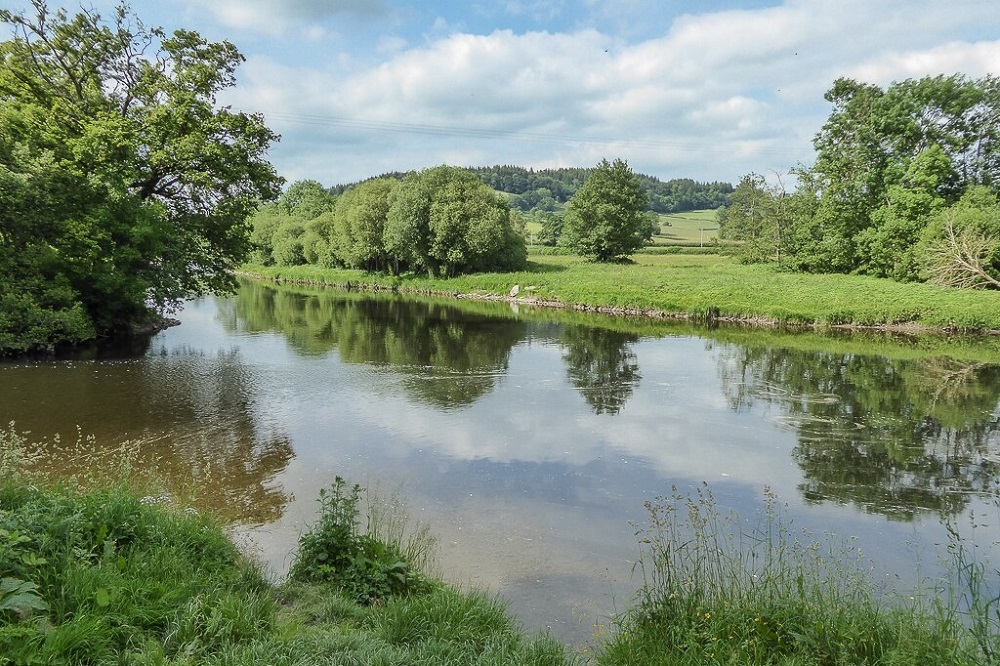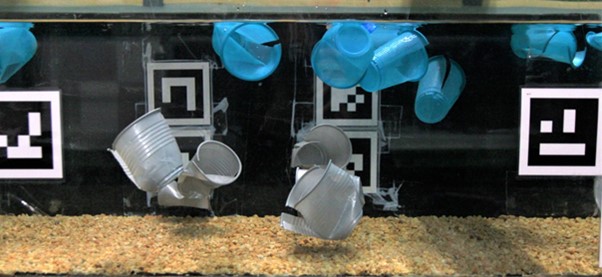Scientists develop new method for quantifying ‘invisible’ plastics in rivers

Current methods to count plastic pollution in rivers are insufficient and do not account for the fragments which sink below the surface, a team of scientists have warned.
These ‘invisible’ plastic particles can be suspended below the water line or sink to the riverbed where they are potentially harmful to the ecology of the river.
The international team, from Cardiff University, Karlsruhe Institute of Technology and Deltares, says these oversights must be addressed in order to establish baseline pollution levels in rivers and determine the success of ongoing clean-up strategies.
“Unseen”
Their study, published in Water Research, describes how these unseen plastics move in rivers and offers a new method of how to count them.
Lead author James Lofty, a PhD researcher at Cardiff University’s School of Engineering, said: “Our study improves our current understanding of how and where plastic pollution is transported in our rivers.
“The methods used at the moment rely on counting plastics on the river surface and are therefore not accurately capturing the plastic travelling underwater or settling on the riverbed.
“This impacts our ability to quantify exactly how much plastic our rivers contain, determine hotspots for plastic pollution and significantly restricts the effectiveness of clean-up strategies.”
The team dropped over 3,000 common plastic pollution items, such as polystyrene cups and other fragments, into large water channels designed to represent real river conditions.

Using multiple cameras, they tracked the movements of the samples to millimetre accuracy.
Their analysis shows that sinking plastics with different shapes and sizes can be transported in diverse ways in rivers.
Accuracy
Mr Lofty added: “In our study, we demonstrate how plastics sink in different orientations. This significantly changes how fast a particle sinks.
“Previously it was thought that plastics always find a stable sinking orientation and therefore sink at a constant speed.
“However, we’ve shown this is not the case for plastics which are fragmented and fractured. This is important, as the sinking rate of a plastic particle is essential for understanding its transport. This finding significantly changes our understanding of how plastics move in rivers.”
These data were used to adapt physics-based equations, previously developed for sediments, which can predict the amount of plastic that travels in rivers within a margin of 10% accuracy.
The team says their method could offer more accurate estimates of the total amount of plastic pollution in rivers.
Mr Lofty said: “There are existing methods which can quantify this type of plastic pollution using underwater cameras or sonar but these cannot practically be deployed in our rivers.
“Our method can be used in any river on account of it using this very well-known equation also used for sediments.”
The team is further developing this method in real rivers and on different types of plastic under varying conditions. They plan to collaborate with industry to help provide more realistic estimations of plastic pollution in rivers and to implement effective mitigation practices.
Professor Catherine Wilson, one of the paper’s co-authors from Cardiff University’s School of Engineering, said: “Our research illuminates how much plastic litter is sinking to the riverbed and travelling undetected in rivers.
“Combined with our existing knowledge of how sediments move in rivers, our new method could provide a more realistic picture of plastic pollution in our rivers and, most importantly, where to focus the resources of plastic clean-up strategies.”
Their paper, ‘On the vertical structure of non-buoyant plastics in turbulent transport’ is published in Water Research.
Support our Nation today
For the price of a cup of coffee a month you can help us create an independent, not-for-profit, national news service for the people of Wales, by the people of Wales.





